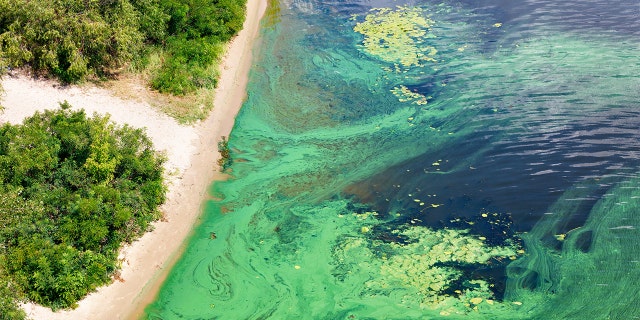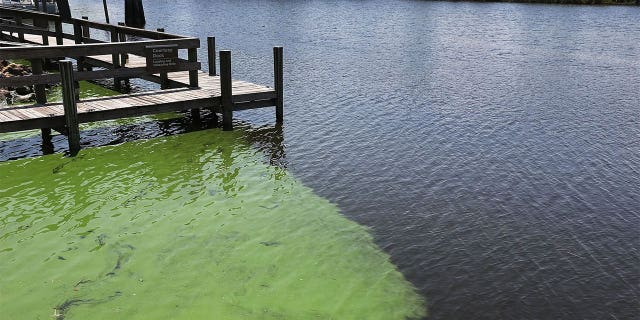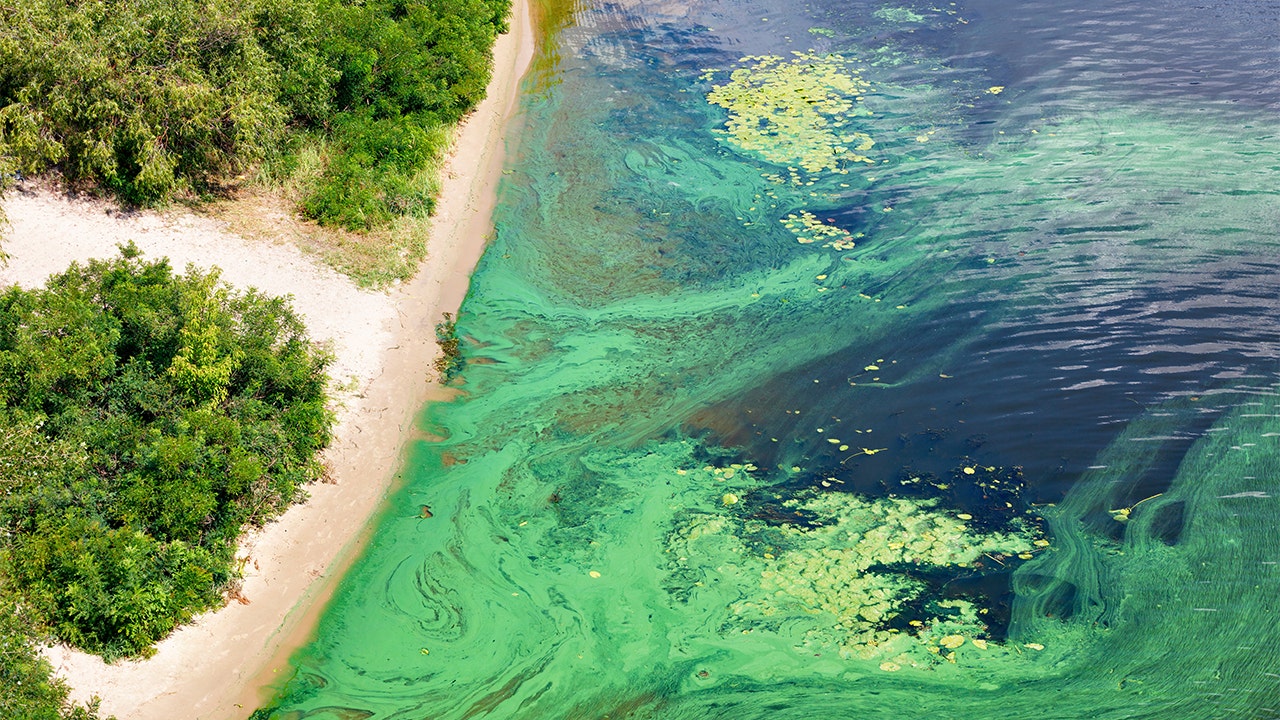Florida Gov. Ron DeSantis announced the awarding of more than $13 million to go toward short-term solutions and innovative technologies to help clean up and prevent harmful blue-green algal blooms.
The $13.6 million will be split between 10 different grantees for a variety of preventative projects in Florida that include things like an automation system that removes algae, phosphorous remediation and a nutrient reduction.

Blue-green algae cover the surface of the flowering water river with a film along the coast. River water pollution. Environmental problems. (iStock)
The amount of each grant varies also, with the Brevard County Natural Resources Management Department receiving $199,500 to conduct ultrasonic algae treatment performance testing in the brackish canals along Sykes Creek, and Osceola County receiving $4 million to perform a nutrient reduction and algal bloom prevention project in Lake Kissimmee.
MASSIVE SMELLY ALGAE BLOOM NEARING FLORIDA WILL IMPACT HEALTH OF RESIDENTS, OCEAN
Cyanobacteria, or blue-green algae, can be found in all of Florida’s freshwater and brackish habitats – lakes, rivers and estuaries,
Nutrient pollution from agricultural and urban runoff causes most freshwater cyanobacteria, or blue-green algae blooms.

STUART, FL – JULY 13: Green algae is seen in the St. Lucie River near Phipps Park on July 13, 2018, in Stuart, Florida. Water releases which carry the green algae from Lake Okeechobee resumed Friday morning into the Caloosahatchee River and into the St. Lucie River at Port Mayaca. (Photo by Joe Raedle/Getty Images) (2018 Getty Images)
Failing septic systems, heavy nitrogen loading to create lush green lawns, and farm effluent has been known to cause the harmful algal blooms, as well.
FLORIDA KEYS INUNDATED WITH 5,000-MILE-WIDE BLOB OF SARGASSUM SEAWEED, AERIAL VIDEO SHOWS
According to a press release from DeSantis’ office, the governor created the Blue-Green Algae Task Force when he took office, to address recurring algal blooms across the state.
The task force presented the governor with its recommendation of investing in a diverse portfolio of modern technologies that will detect, prevent, clean up and mitigate the blooms.

Florida Gov. Ron DeSantis speaks at a New Hampshire Republican Party dinner, Friday, April 14, 2023, in Manchester, N.H. (AP Photo/Charles Krupa)
“In addition to our record investment in water quality projects to reduce nutrient loading at its source, my administration has secured dedicated funding to deploy innovative technologies to address algal blooms,” DeSantis said. “These projects will help identify new ways to treat, predict and respond to blue-green algal blooms, protecting our environment and our economy.”
Through the Innovative Technology Grant Program, the Florida Department of Environmental Protection, or DEP, can allocate funding and engage more with the task force to make sure the program is successful.
DeSantis’ commitment has resulted in $50 million getting appropriated over the last four years for innovative technologies, specifically involving efforts to combat and cleanup harmful algal blooms and red tide.
Florida has also dedicated $1.6 billion toward water restoration projects while taking necessary steps to address excess nutrients entering the waterways.


